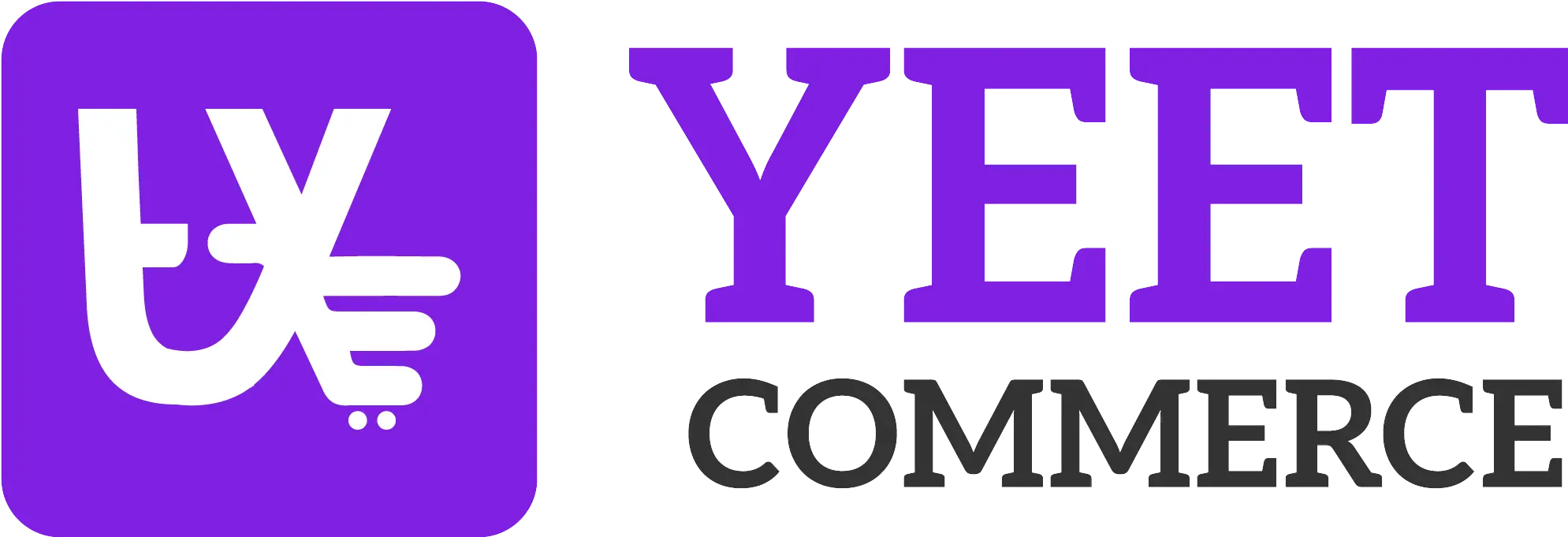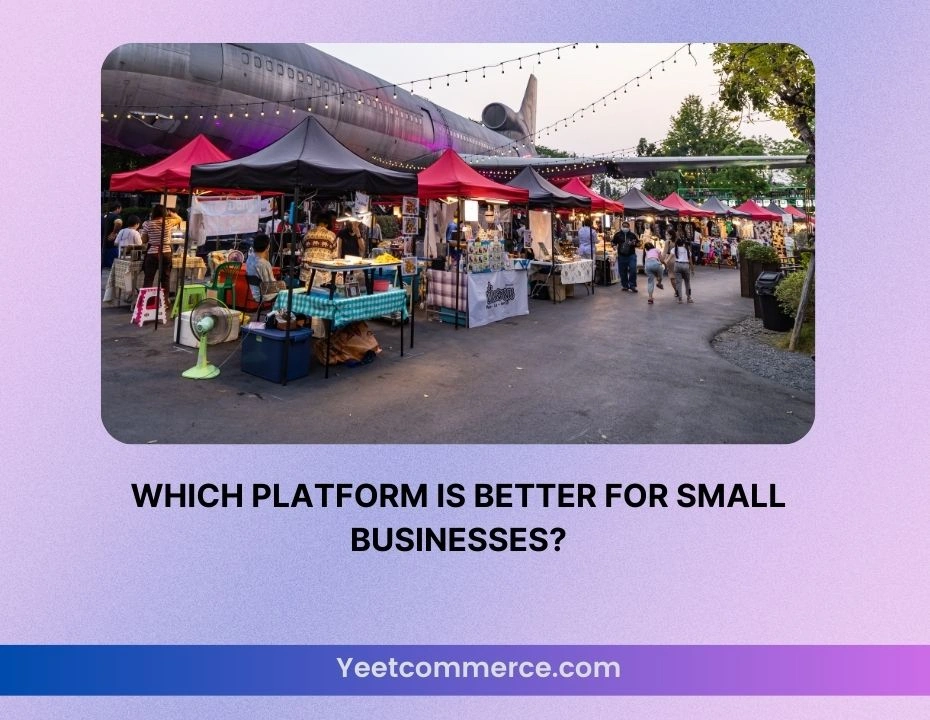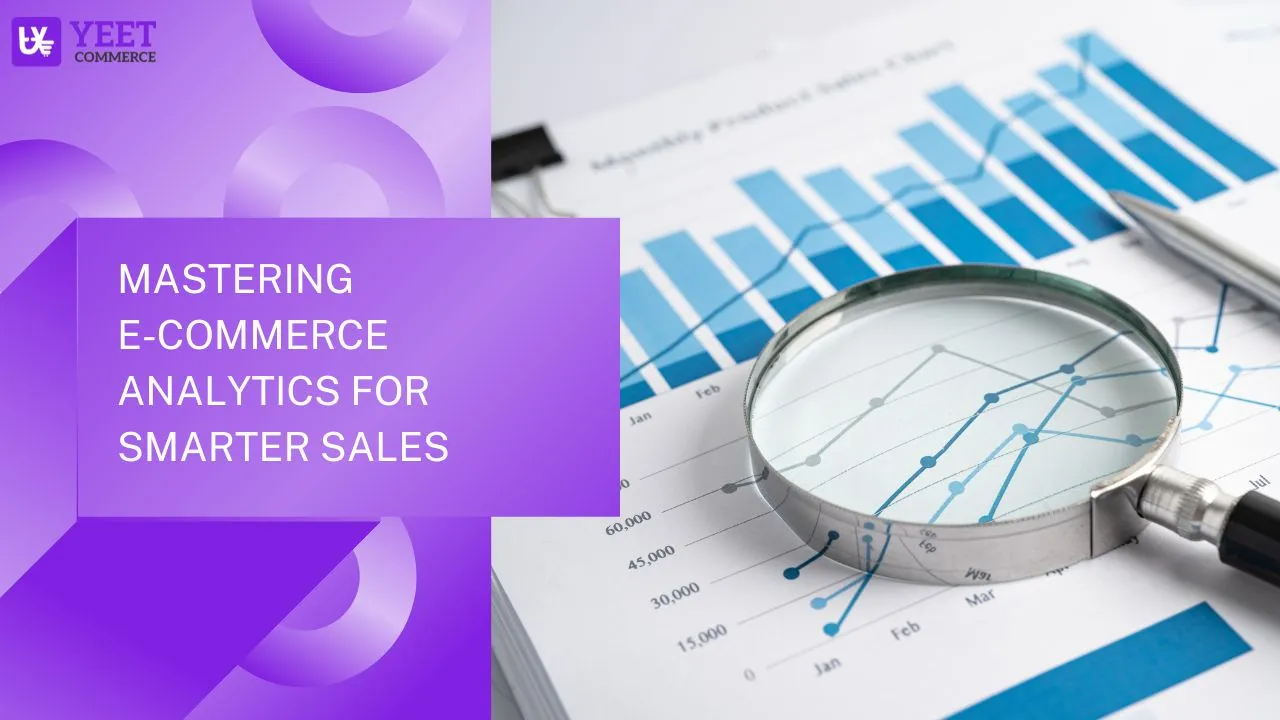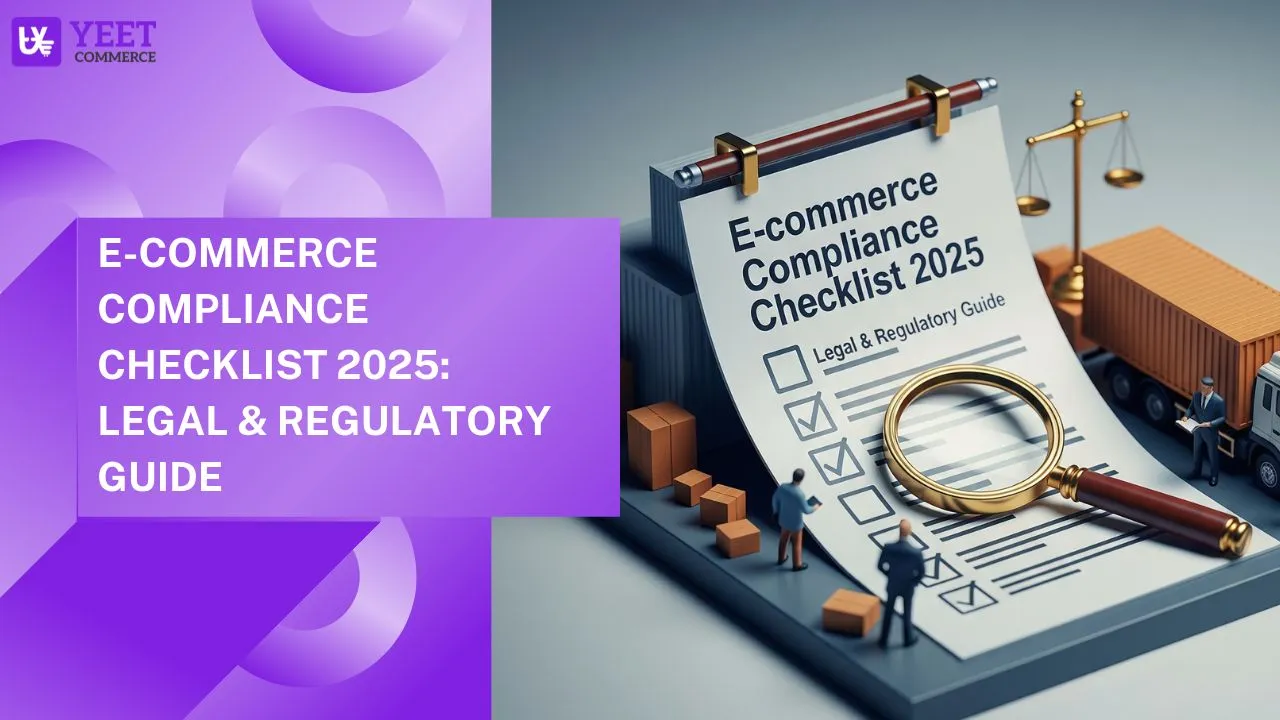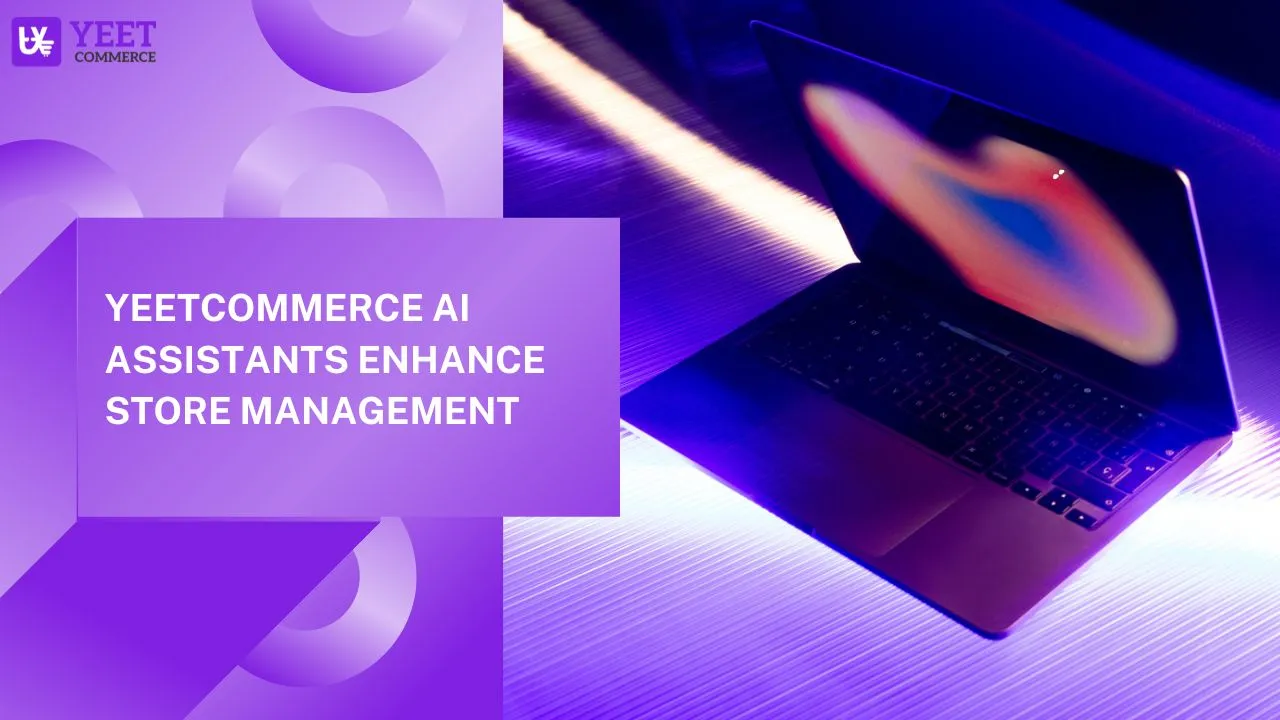Yeetcommerce vs Bigcommerce: When it comes to eCommerce platforms, picking the right one is a major choice. With options like Yeetcommerce and Bigcommerce, finding the ideal match for your business can be overwhelming. Let’s explore the strengths of each platform and address some common challenges to help you make an informed decision!
When selecting the right eCommerce platform, the choice between Yeetcommerce and Bigcommerce often comes down to your specific business size, budget, and long-term vision. Each platform shines in unique ways, and understanding these differences is key to picking the one that aligns best with your goals. As eCommerce strategist Talia Wolf emphasizes, “Your eCommerce platform should reflect your business’s unique needs, allowing for growth and scalability” (GetUplift, 2023).
Yeetcommerce: A Friendly, Affordable Start
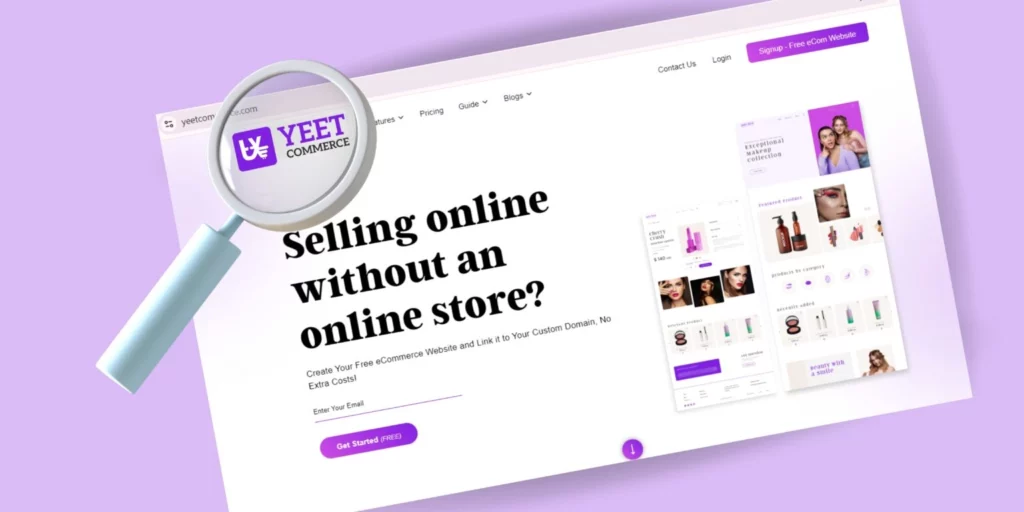
Yeetcommerce stands out for its simplicity, affordability, and user-friendly approach, making it an excellent choice for beginners and small businesses. If you’re just starting out or if budget is a top priority, Yeetcommerce offers essential tools to build a functional, attractive store without overwhelming you with complex features or high costs.
To support your decision, consider conducting original research by gathering user reviews and case studies specific to Yeetcommerce. This data can provide valuable insights into how other small businesses have navigated their eCommerce journey using this platform.
It’s well-suited for businesses that want a straightforward setup with easy customization options that don’t require coding expertise. The drag-and-drop design and clean interface make it easy for even the most tech-challenged users to create a beautiful online store that reflects their brand.
For businesses looking to make their mark quickly without diving into advanced tech, Yeetcommerce is ideal. It also includes reliable SEO tools, social media integration, and responsive customer support, which provide the essentials for building an online presence effectively. However, Yeetcommerce is designed with smaller to medium-sized stores in mind, meaning it might not offer the extensive range of integrations or scalability needed for high-volume, fast-growing businesses.
Bigcommerce: Robust Features and Scalability for Ambitious Growth
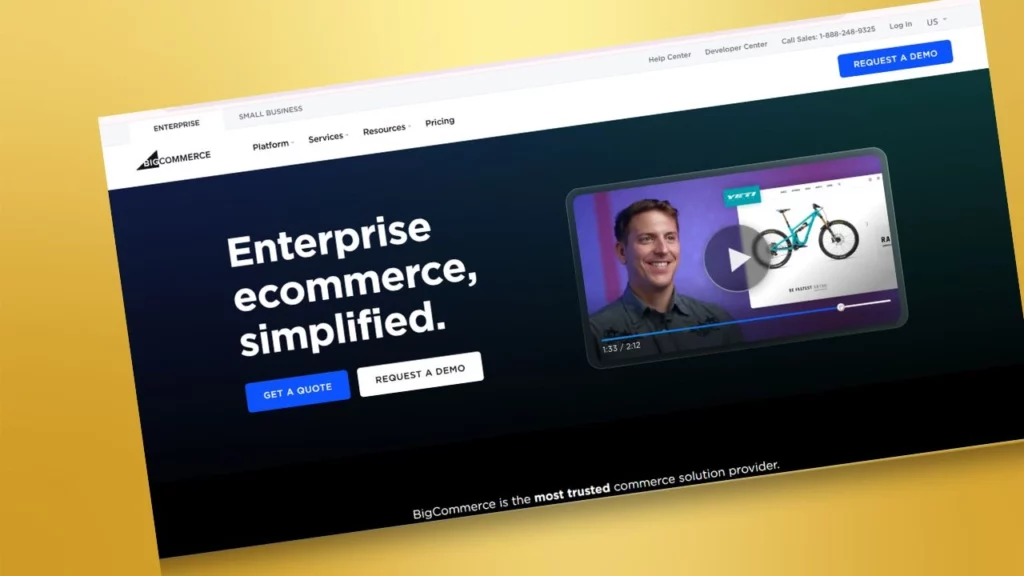
Bigcommerce takes a different approach, catering to businesses that need a platform capable of handling more extensive operations and higher traffic volumes. With a range of advanced features, it’s well-suited for larger businesses, those with a high volume of sales, or those planning to scale quickly.
Conducting original research, such as performance benchmarks and case studies on businesses using Bigcommerce, can help you understand how this platform can adapt to growing needs. Its robust backend can handle large inventories and complex setups, so if you’re planning on a high-growth trajectory, Bigcommerce provides the stability and performance to support that growth.
Bigcommerce also offers a more extensive app store and various integrations, which makes it easy to add specialized functionality as your business grows. From marketing automation to advanced analytics and inventory management tools, Bigcommerce’s versatility is its biggest strength. However, this functionality does come with a steeper learning curve and potentially higher pricing. Bigcommerce’s plans are pricier, and the platform itself can feel more complex, which might mean investing more time in training and setup.
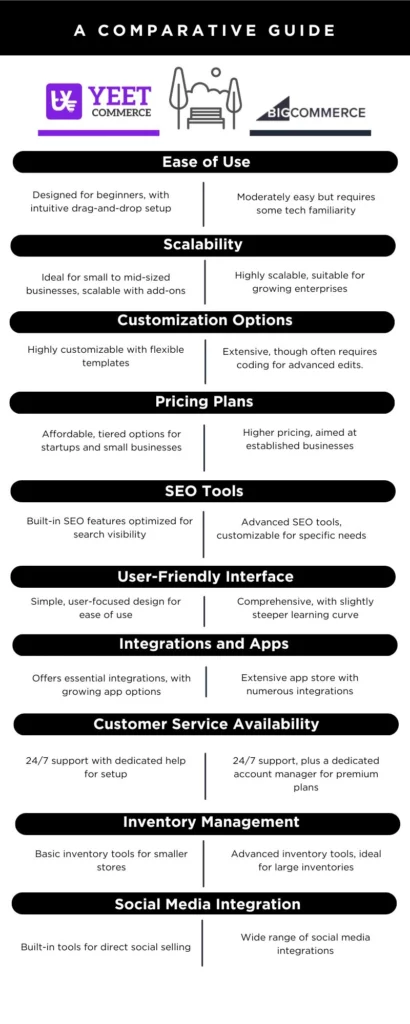
Ease of Use vs. Feature Depth: A Trade-Off
If your goal is to get an online store up and running with minimal effort, Yeetcommerce’s simplicity and ease of use make it a clear winner. You won’t need extensive tutorials or technical knowledge, which allows you to focus on building your brand and customer base rather than learning the platform. This is great for business owners who prefer to spend more time on marketing, product development, or customer service rather than backend management.
On the flip side, if you’re looking for deeper features and flexibility to tailor your site as it grows, Bigcommerce’s feature depth is hard to beat. It’s more demanding upfront but rewards that investment with scalability and adaptability, which makes it suitable for fast-growing businesses that want to go beyond the basics. For those comfortable with eCommerce technology and possibly a team of developers, Bigcommerce’s more advanced structure might be worth the initial complexity.
Customization and Design Flexibility
Both platforms allow you to customize the look and feel of your store, but Yeetcommerce focuses on intuitive, easy-to-use design tools that allow you to get creative without any technical hassle. You’ll find it easy to personalize your store with color schemes, fonts, and layout options that bring your brand’s identity to life, especially if you’re a small business without dedicated developers.
Bigcommerce offers more flexibility, but this flexibility often requires additional technical knowledge to make the most of its design capabilities. For those with a creative team or a designer, Bigcommerce’s more extensive design tools provide the freedom to create a truly unique store. However, without coding skills or design support, it may be challenging to fully utilize this flexibility, which is something to consider based on your resources and design needs.
Pricing: Affordability vs. Premium Features
When considering pricing, Yeetcommerce stands out as a budget-friendly option for smaller businesses and startups. Its plans are designed to be accessible, offering essential eCommerce tools without the high price tag. This affordability allows you to launch your online store without straining your finances, ensuring you have the foundational tools necessary for success right from the start. Additionally, Yeetcommerce maintains a transparent pricing structure, which typically includes most of the features small businesses need out of the box. This transparency helps you make informed decisions, reducing any anxiety around hidden costs.
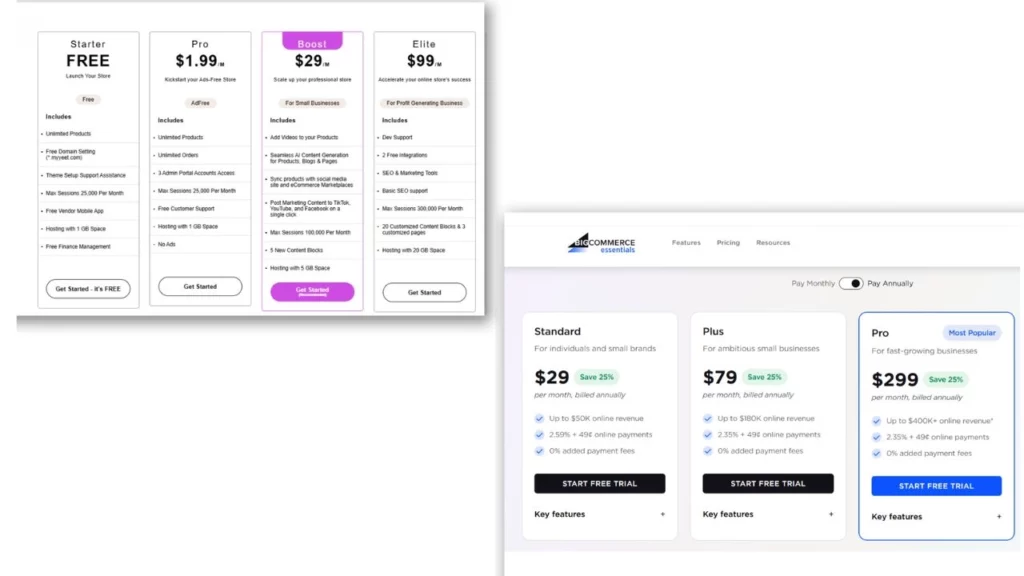
On the other hand, Bigcommerce presents a higher pricing tier that aligns with its premium features. The advanced functionalities it offers, such as multi-store management, advanced reporting, and extensive integrations, can be invaluable for businesses with more complex needs. For instance, a retailer managing multiple product lines may find Bigcommerce’s capabilities essential for streamlining operations and gaining insights into sales performance. However, for smaller businesses that don’t require these extensive features, Bigcommerce’s higher-tiered plans may seem excessive and financially burdensome.
In summary, if your business is just starting or if you prioritize affordability, Yeetcommerce is likely the better choice. Its value proposition allows you to access essential tools at a lower cost, giving you the flexibility to grow without significant upfront investment. Conversely, if you anticipate scaling your operations or need sophisticated features from the outset, investing in Bigcommerce could be justified. As with any financial decision, consider your unique needs and long-term goals to determine the best path forward.
Support and Resources: The Role of Customer Service
Both Yeetcommerce and Bigcommerce offer responsive customer support, but Yeetcommerce tends to provide a more personal touch. For new eCommerce users, Yeetcommerce’s hands-on approach and friendly support team can be a lifesaver, especially during setup or when troubleshooting issues. Bigcommerce, while also offering reliable support, gears more of its resources toward premium-plan users and has extensive documentation aimed at users with a good understanding of eCommerce technology.
If you’re someone who values a high level of customer service and support to help guide you through the platform, Yeetcommerce’s more accessible approach could be a better match. However, if your business can afford premium support or you have a team that understands the technology, Bigcommerce’s 24/7 support and extensive resources make it a reliable choice for continuous growth.
SEO and Marketing Tools
Effective SEO and marketing tools are crucial for online store success, and both platforms offer strong solutions. Yeetcommerce keeps SEO simple, making it easy for beginners to optimize their stores without a deep understanding of SEO tactics. You can handle essentials like meta tags, descriptions, and titles with ease. Yeetcommerce’s social media integration also helps beginners connect with audiences without added complexity.
Bigcommerce, on the other hand, provides a more advanced SEO suite that may appeal to those with more technical know-how. The platform’s detailed analytics, integrated email marketing options, and third-party integrations cater to businesses that need advanced marketing tools. For those who want detailed reporting and in-depth marketing customization, Bigcommerce may be more beneficial, though it can be overkill for simpler operations.
User-Friendly Interface: Navigating the Backend With Ease
A clean, intuitive interface is a game-changer for managing an online store efficiently. Yeetcommerce makes this easy with its simple, user-friendly backend design, where clear menus and logical navigation help you find what you need quickly. This ease of use allows you to focus on running your business rather than getting lost in technical details. For small business owners, this simplicity translates to a smoother, more enjoyable experience that doesn’t require advanced tech skills.
Bigcommerce, on the other hand, is packed with advanced features that, while powerful, can feel a bit overwhelming to newcomers. Its backend can be cluttered, requiring some initial learning to navigate efficiently. Although it’s a strong platform for those with eCommerce experience or a team, beginners might find the learning curve slightly intimidating. For those looking for a platform that’s easy to master from day one, Yeetcommerce’s streamlined backend might be the better choice.
Inventory Management: Simplifying the Product Catalog
Managing inventory becomes crucial as your store grows, and Yeetcommerce offers an approachable, straightforward product catalog system. Adding, organizing, and updating products is smooth and simple, making it ideal for small to mid-sized stores that prioritize efficiency. With Yeetcommerce, you can maintain a well-organized catalog without diving into complex inventory tools, allowing you to focus on growth rather than micromanaging your product listings.
In contrast, Bigcommerce brings a robust inventory management system, designed for businesses with high-volume or intricate inventory needs. Its advanced features are great for those managing a vast number of SKUs or complex product categories. However, for smaller stores, this can feel like overkill, with too many options that may not be necessary for
your business model.
Conclusion: Choosing Your eCommerce Path
In conclusion, the decision between Yeetcommerce and Bigcommerce hinges on your business’s current needs and future aspirations. If you’re starting small and looking for affordability, ease of use, and essential tools, Yeetcommerce is a fantastic choice. It provides the foundational features needed to grow your online store effectively while keeping your budget intact.
Alternatively, if you envision significant growth and need a platform that can handle complex operations and larger inventories, Bigcommerce may be the better fit. Its extensive features cater to ambitious businesses ready to invest in their online presence and expand rapidly.
Ultimately, choosing the right platform is about aligning your business goals with the strengths of each option. Whether you’re starting with Yeetcommerce or scaling up with Bigcommerce, each platform offers unique advantages that can help propel your online store toward success.




